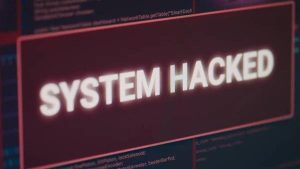
In the digital age, businesses are increasingly reliant on technology to operate efficiently and competitively. However, this reliance comes with a significant risk: phishing attacks. These cyber threats can lead to devastating consequences such as data breaches, financial loss, and damage to the company’s reputation. Therefore, it is crucial for businesses of all sizes to implement managed IT strategies that can safeguard them from these malicious activities.
Managed IT services offer comprehensive solutions designed to protect businesses from phishing attacks. They provide proactive monitoring and detection systems that identify potential threats before they infiltrate your network. By employing sophisticated algorithms and machine learning techniques, these services can detect unusual patterns or suspicious activities indicative of a phishing attack.
One effective strategy involves implementing multi-factor authentication (MFA). MFA requires users to verify their identity through multiple methods before gaining access to sensitive data or systems. This could be something they know like a password, something they have like a mobile device or smart card, or something they are like a fingerprint or facial recognition. This additional layer of security significantly reduces the chances of unauthorized access even if an attacker has obtained user credentials via phishing.
Another critical component in safeguarding against phishing attacks is explore further regular employee training and education. Employees often serve as the first line of defense against cyber threats; therefore, ensuring they understand how to identify and respond appropriately is essential. Managed IT service providers often offer cybersecurity awareness training programs that educate employees about various forms of phishing scams and how not to fall victim.
Furthermore, employing advanced email filtering tools can effectively reduce the likelihood of receiving phishing emails in the first place. These tools scan incoming messages for telltale signs of phishing attempts such as suspicious links or attachments and quarantine them before reaching an employee’s inbox.
Regular system updates also play an integral role in protecting against cyber threats including phishing attacks. Cybercriminals often exploit known vulnerabilities present in outdated software versions; hence keeping all systems up-to-date helps close off potential entry points.
Lastly, having a robust incident response plan is crucial. Despite all preventive measures, phishing attacks may still occur. In such cases, a well-defined response plan enables businesses to quickly contain the situation and minimize damage. This includes steps for identifying the breach, containing it, eradicating the threat from your system, recovering data or systems, and notifying relevant parties of the incident.
In conclusion, safeguarding businesses from phishing attacks requires a multi-faceted approach that combines technological solutions with continuous education and preparedness. By partnering with managed IT service providers who specialize in cybersecurity strategies, businesses can significantly reduce their risk of falling victim to these damaging cyber threats.



